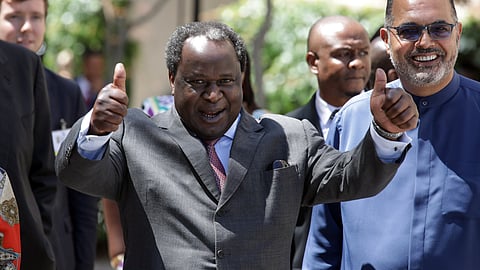FT: Remembering Tito Mboweni – eight hours with him at home
Tito Mboweni's journey from aspiring anti-apartheid fighter to South Africa's central bank governor and finance minister reveals a life marked by resilience, humour, and an unwavering commitment to his country. Despite frustrations with the ANC's corruption and mismanagement, Mboweni remained determined to steer South Africa's economy back on course. His story is a mix of politics, personal anecdotes, and culinary delights, capturing a man who balances leadership with a zest for life.
Sign up for your early morning brew of the BizNews Insider to keep you up to speed with the content that matters. The newsletter will land in your inbox at 5:30am weekdays. Register here.
By David Pilling
South Africa's finance minister on his party's record, Zuma — and his bid to be a guerrilla
___STEADY_PAYWALL___

